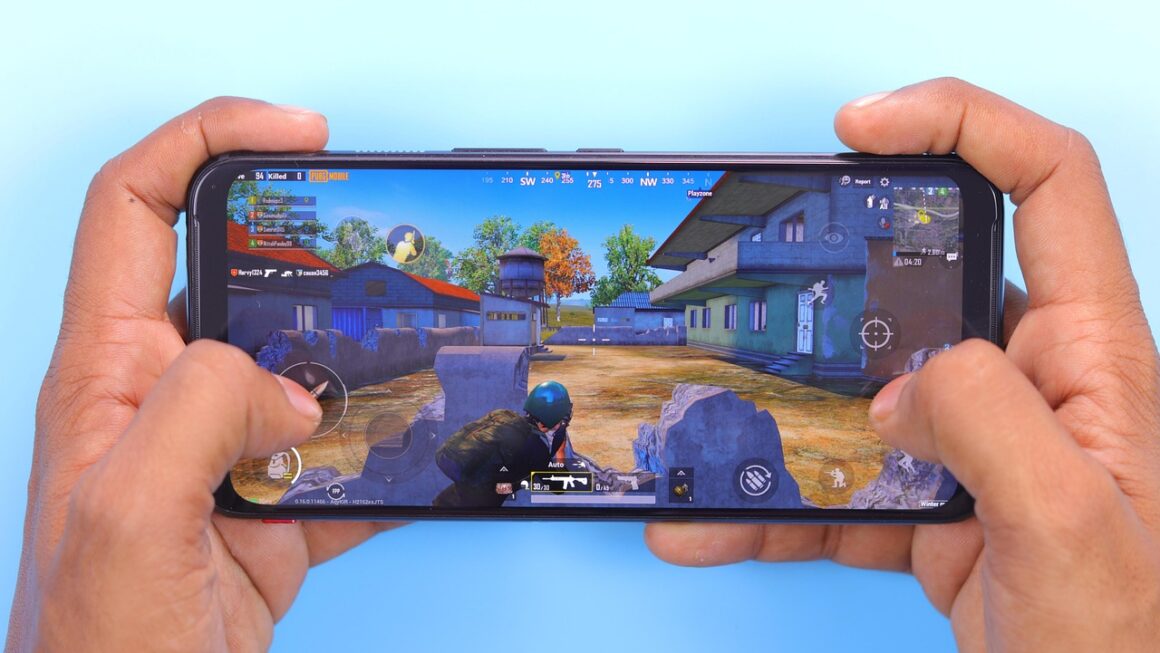Competitive gaming, also known as esports, has exploded from a niche hobby into a global phenomenon, captivating millions of viewers and generating billions of dollars in revenue. It’s no longer just about bragging rights; it’s a serious profession for many, demanding dedication, skill, and strategic thinking. Whether you’re a seasoned gamer or simply curious about this exciting world, this guide will delve into the key aspects of competitive gaming, exploring its intricacies and offering insights into its ever-evolving landscape.
What is Competitive Gaming?
Defining Esports
At its core, competitive gaming involves organized video game competitions, typically between individuals or teams, for cash prizes, recognition, and sponsorships. These competitions can range from small, local tournaments to massive international events with millions of viewers.
- Esports titles span various genres, including:
Multiplayer Online Battle Arenas (MOBAs) – e.g., League of Legends, Dota 2
First-Person Shooters (FPS) – e.g., Counter-Strike: Global Offensive (CS:GO), Overwatch, Valorant
Fighting Games – e.g., Street Fighter, Mortal Kombat, Super Smash Bros.
Real-Time Strategy (RTS) – e.g., StarCraft II
Sports Games – e.g., FIFA, NBA 2K
Battle Royale – e.g., Fortnite, PUBG: Battlegrounds
The Rise of Esports
Esports has seen phenomenal growth in recent years. Several factors contribute to this surge in popularity:
- Accessibility: Streaming platforms like Twitch and YouTube make it easy for anyone to watch competitive gaming.
- Professionalism: Esports organizations and leagues have matured, providing structure and stability for players.
- Sponsorships: Major brands are investing heavily in esports, recognizing its reach and potential.
- Gaming Culture: The gaming community is passionate and engaged, driving viewership and participation.
According to Newzoo, the global esports market is projected to generate over $1.6 billion in revenue by 2024. This demonstrates the immense economic impact and mainstream appeal of competitive gaming.
Becoming a Competitive Gamer
Skill Development
Reaching a professional level in esports requires more than just playing a game casually. It demands:
- Dedicated Practice: Top players often practice for 8-12 hours per day, focusing on specific skills and strategies.
- Strategic Thinking: Understanding the game’s mechanics, meta, and optimal strategies is crucial.
- Teamwork & Communication: In team-based games, effective communication and coordination are essential.
- Reflexes and Motor Skills: Fast reaction times and precise movements are vital for success.
For example, a Counter-Strike: Global Offensive (CS:GO) professional will spend hours practicing their aim, learning map layouts, and developing strategies with their team.
Building a Portfolio
To get noticed by teams and organizations, aspiring esports players need to build a portfolio demonstrating their skills:
- Ranked Play: Achieving a high rank in the game’s competitive ladder proves skill and dedication.
- Online Tournaments: Participating in online tournaments provides experience and exposure.
- Streaming & Content Creation: Streaming gameplay and creating content on platforms like Twitch or YouTube can attract viewers and potential sponsors.
- Networking: Engaging with the esports community and building connections with other players and organizations is important.
One approach is to create highlight reels of your best plays and share them on social media, tagging relevant teams or organizations. Consistent high-level performance in ranked play is also vital.
The Ecosystem of Esports
Teams and Organizations
Esports teams and organizations are the backbone of the competitive gaming scene. They:
- Recruit and Manage Players: Teams scout and recruit talented players, providing them with coaching, training, and resources.
- Compete in Tournaments: Teams participate in various tournaments and leagues, vying for prize money and recognition.
- Secure Sponsorships: Organizations secure sponsorships from major brands, providing financial support for their teams and operations.
- Create Content: Teams and organizations often create content to engage with fans and promote their brand.
Examples include organizations such as TSM, Cloud9, and FaZe Clan, who field teams across multiple esports titles and have built massive fan bases.
Tournaments and Leagues
Esports tournaments and leagues provide the platform for competitive gaming events:
- Major Championships: Prestigious events like the League of Legends World Championship, The International (Dota 2), and the CS:GO Major Championships attract millions of viewers and offer substantial prize pools.
- Regional Leagues: Regional leagues like the League of Legends European Championship (LEC) and the North American League of Legends Championship Series (LCS) provide regular competitive play for teams in specific regions.
- Online Tournaments: Online tournaments offer opportunities for players and teams of all levels to compete.
- Prize Pools: Prize pools can range from a few thousand dollars for smaller tournaments to millions of dollars for major championships. The International 2021, for example, had a prize pool of over $40 million.
Streaming and Media
Streaming platforms and media outlets play a crucial role in broadcasting and promoting esports:
- Twitch: The dominant streaming platform for esports, allowing viewers to watch live gameplay, interact with streamers, and participate in chat.
- YouTube: Provides a platform for esports organizations and players to upload VODs (Video on Demand), highlights, and other content.
- ESPN and Other Sports Networks: Increasingly, traditional sports networks are broadcasting esports events, recognizing their growing popularity.
- Esports News Sites: Websites like Dot Esports, The Esports Observer, and Dexerto provide news, analysis, and coverage of the esports industry.
Challenges and Opportunities in Esports
Player Health and Wellbeing
The demanding lifestyle of a professional gamer can take a toll on their physical and mental health. Common challenges include:
- Burnout: Long hours of practice and competition can lead to burnout and exhaustion.
- Repetitive Strain Injuries (RSIs): Prolonged use of computers and peripherals can cause RSIs.
- Mental Health Issues: The pressure to perform and the competitive nature of esports can contribute to anxiety and depression.
- Sleep Deprivation: Inconsistent sleep schedules can disrupt players’ health and performance.
Esports organizations are increasingly recognizing the importance of player health and wellbeing and are providing resources such as sports psychologists, physical therapists, and nutritionists.
Diversity and Inclusion
The esports industry has historically faced challenges with diversity and inclusion. However, there are efforts to address these issues:
- Promoting Female Gamers: Organizations are working to create more opportunities and visibility for female gamers.
- Addressing Discrimination: Efforts are being made to combat racism, sexism, and other forms of discrimination in the esports community.
- Creating Inclusive Environments: Teams and organizations are fostering inclusive environments that welcome players from diverse backgrounds.
Initiatives like the Women in Games International (WIGI) and the Gay Gaming Professionals (GGP) are actively working to promote diversity and inclusion in the gaming industry.
The Future of Esports
The future of esports looks bright, with ongoing growth and innovation expected in the coming years:
- Further Mainstream Adoption: Esports is likely to become even more integrated into mainstream culture, with greater media coverage and sponsorship opportunities.
- New Game Titles and Genres: New games and genres will continue to emerge, attracting new players and viewers.
- Technological Advancements: Virtual reality (VR) and augmented reality (AR) technologies could potentially revolutionize esports, creating new and immersive experiences.
- Increased Professionalism: Esports organizations and leagues will continue to professionalize, providing greater structure and stability for players and teams.
Conclusion
Competitive gaming is a dynamic and rapidly evolving industry with immense potential. Whether you’re an aspiring professional player, a casual viewer, or simply curious about this exciting world, understanding the key aspects of esports is essential. From skill development and team dynamics to tournaments, streaming, and the challenges and opportunities that lie ahead, competitive gaming offers a unique and captivating experience. As esports continues to grow and mature, its impact on the entertainment landscape will undoubtedly become even more significant.




